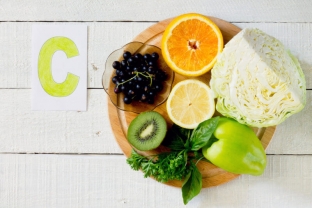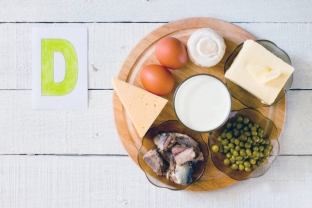Cognitive decline can be caused by a variety of factors, including age-related changes, exposure to toxic substances, chronic stress, and poor nutrition. For the normal operation of the body's control center, it is necessary to continuously supply the necessary nutrients, including vitamins.
The brain can be protected from neurological diseases such as dementia and Alzheimer's by a combination of regular exercise (especially aerobic exercise), mental challenge, and proper nutrition.
Vitamins to help protect the brain from neurological diseases
In this article, estet-portal.com will take a closer look at the vitamins that should be present in sufficient quantities in the diet to protect the brain from disturbances in its work.
- B vitamins
This group includes 8 vitamins that work together in the body, but at the same time perform separate important functions. Most of the B vitamins contribute to the production of energy from the food we eat. Thiamine supports the proper functioning of the nervous system, while niacin – cardiovascular health. B vitamins help prevent memory loss, slow down aging, and even fight depression. One of the most important functions of these vitamins is to participate in the production of neurotransmitters necessary for brain health.

Sources: legumes, leafy vegetables, eggs, fish, poultry, bananas, carrots, potatoes, peanuts.
Read also: 13 best brain hobbies that will make your convolutions work
- Vitamin C
This vitamin dissolves in water, so the body is unable to store it. However, it is he who is necessary for the growth and repair of tissues throughout the body. Wound healing, maintaining healthy bones and teeth – also the tasks of vitamin C. In addition, it is an antioxidant that protects the body from free radicals, increases serotonin levels, and acts as an antidepressant. For learning, memory and protecting the brain from age-related diseases and strokes vitamin With irreplaceable.

Sources: citrus fruits, green peppers, papaya, mango, broccoli, tomatoes, cabbage.
- Vitamin D
"Sunny" the vitamin is essential for regulating the absorption of calcium and phosphorus by the body, as well as maintaining the proper function of the immune system. Vitamin D is also required for bone growth and development, and a lack of it increases the risk of osteoporosis. Vitamin D also helps improve memory and mood, as well as the ability to solve problems.

Sources: 10-minute walks in the sun, salmon, egg yolk, shrimp.
- Vitamin E
This vitamin is fat soluble and is an antioxidant that helps prevent cell damage in the body. It is necessary for the production of red blood cells and the proper use of vitamin K. Reducing the risk of heart disease, cancer, Alzheimer's disease, diabetes, and rheumatoid arthritis is possible with sufficient vitamin E intake. It helps protect the brain from premature aging and improves memory.

Sources: Eggs, nuts, sunflower seeds, leafy greens, sweet potatoes, asparagus, avocados.
Read also: Professions that slow down the aging of the brain are named
- Vitamin K
This vitamin is also fat soluble and plays an important role in preventing blood clots, strengthening bones and preventing heart disease. Vitamin K2 helps prevent hardening of the arteries. Apart from this, it is also effective in preventing cancer of the lung, prostate, rectum, stomach and mouth. Improvements in cognition and memory in the elderly have also been observed with adequate amounts of this vitamin.

Sources: cabbage, spinach, parsley.
According to the editors of estet-portal.com, the best approach to preventing premature brain aging is a comprehensive – combining physical and mental exercise with proper nutrition, as well as mastering stress management techniques and regular communication with family and friends.






Add a comment